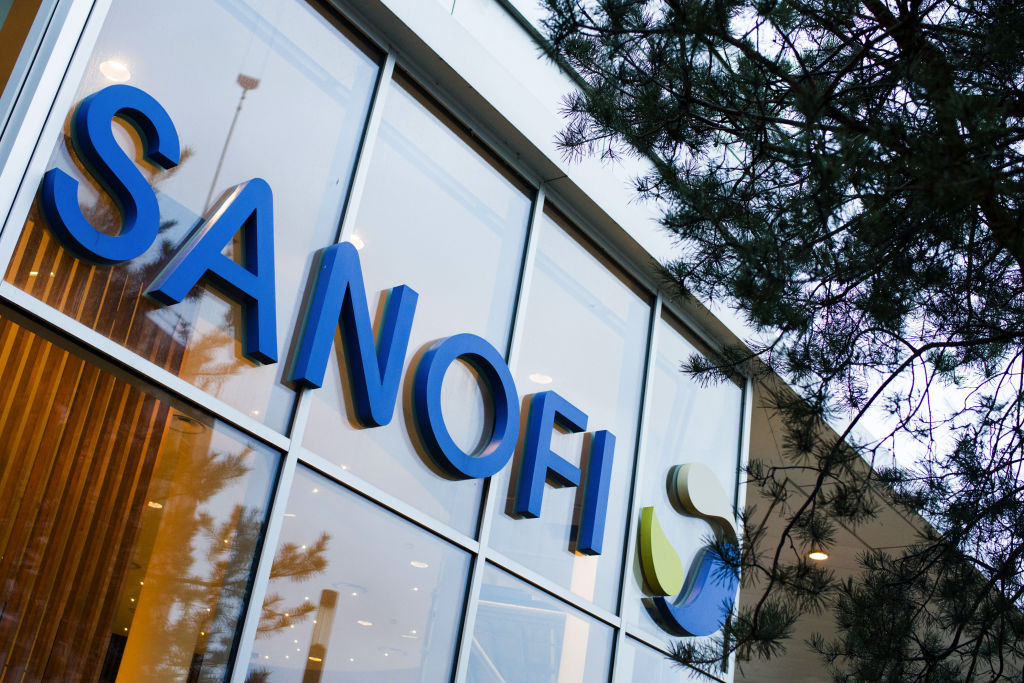
Sanofi is continuing its dealmaking streak with a $1.9 billion acquisition agreement for Kadmon Holdings, maker of a recently approved drug that treats a common and potentially fatal complication of transplant procedures.
According to financial terms announced Wednesday, Sanofi will pay $9.50 for each share of Kadmon, a premium of 79% over the company’s $5.30 closing stock price on Tuesday, and about 113% more than the average trading price over the past two months. But the purchase price is still short of the $12 per share price Kadmon fetched in its 2016 IPO, a peak it never matched in five years as a publicly traded company.
New York-based Kadmon develops drugs for immune and fibrotic diseases, as well as cancer. The centerpiece of the acquisition is Rezurock, a treatment for chronic graft-versus-host disease (GVHD). The condition can develop following a bone marrow or stem cell transplant. The transplanted cells see the host’s cells as foreign and attack them, sparking inflammation. The first line of GVHD treatments include steroids. Immunosuppresive drugs can also be used, such as Sanofi’s Thymoglobulin.
Rezurock offers transplant patients another option. The drug is a small molecule that blocks Rho-associated coiled-coli kinase 2 (ROCK2), a protein that plays a role in the body’s inflammatory responses. In July, the FDA approved the Kadmon drug as a treatment for patients 12 and older who have not responded to at least two earlier lines of systemic therapy.
The Kadmon acquisition will add Rezurock to Sanofi’s small lineup of transplant products. In addition to Thymoglobulin, which accounted for €316 million in sales last year, the France-based pharmaceutical giant also markets Mozobil, a drug that helps bone marrow release stem cells into the blood so they can be collected for the transplant procedure. Mozobil generated €214 million in 2020 sales. Both drugs are currently marketed in more than 65 countries. Harlan Waksal, president and CEO of Kadmon, framed the acquisition as a way to get Rezurock to more patients.

A Deep-dive Into Specialty Pharma
A specialty drug is a class of prescription medications used to treat complex, chronic or rare medical conditions. Although this classification was originally intended to define the treatment of rare, also termed “orphan” diseases, affecting fewer than 200,000 people in the US, more recently, specialty drugs have emerged as the cornerstone of treatment for chronic and complex diseases such as cancer, autoimmune conditions, diabetes, hepatitis C, and HIV/AIDS.
“By leveraging Sanofi’s global resources and long-standing expertise in developing and commercializing innovative medicines, Rezurock is now well positioned for global accessibility, faster,” he said in a prepared statement.
Sanofi said it will work to bring Rezurock to more markets across the world. The drug could also have additional applications. Kadmon has been developing the small molecule as a treatment for systemic sclerosis, a rare autoimmune disorder affecting the skin, joints, internal organs, and blood vessels. An open label Phase 2 study is already underway. Another Kadmon drug, KD033, is a fusion protein in early stage development for treating solid tumors.
The past year has been a busy one for Sanofi on the dealmaking front. Last month, the company announced a $3.2 billion acquisition agreement for Translate Bio, a messenger RNA developer. That deal followed the formation of an mRNA vaccines unit that will be backed by €400 million annually. In April, Sanofi paid $160 million to acquire Tidal Therapeutics, a preclinical company developing a way to engineer immune cells inside of a patient.
Sanofi said it will finance the Kadmon acquisition with available cash. The boards of directors of both companies have approved the deal, which still requires the approval of a majority of Kadmon shareholders. The companies expect to close the transaction in the fourth quarter of this year.
Photo: Nathan Laine/Bloomberg, via Getty Images













